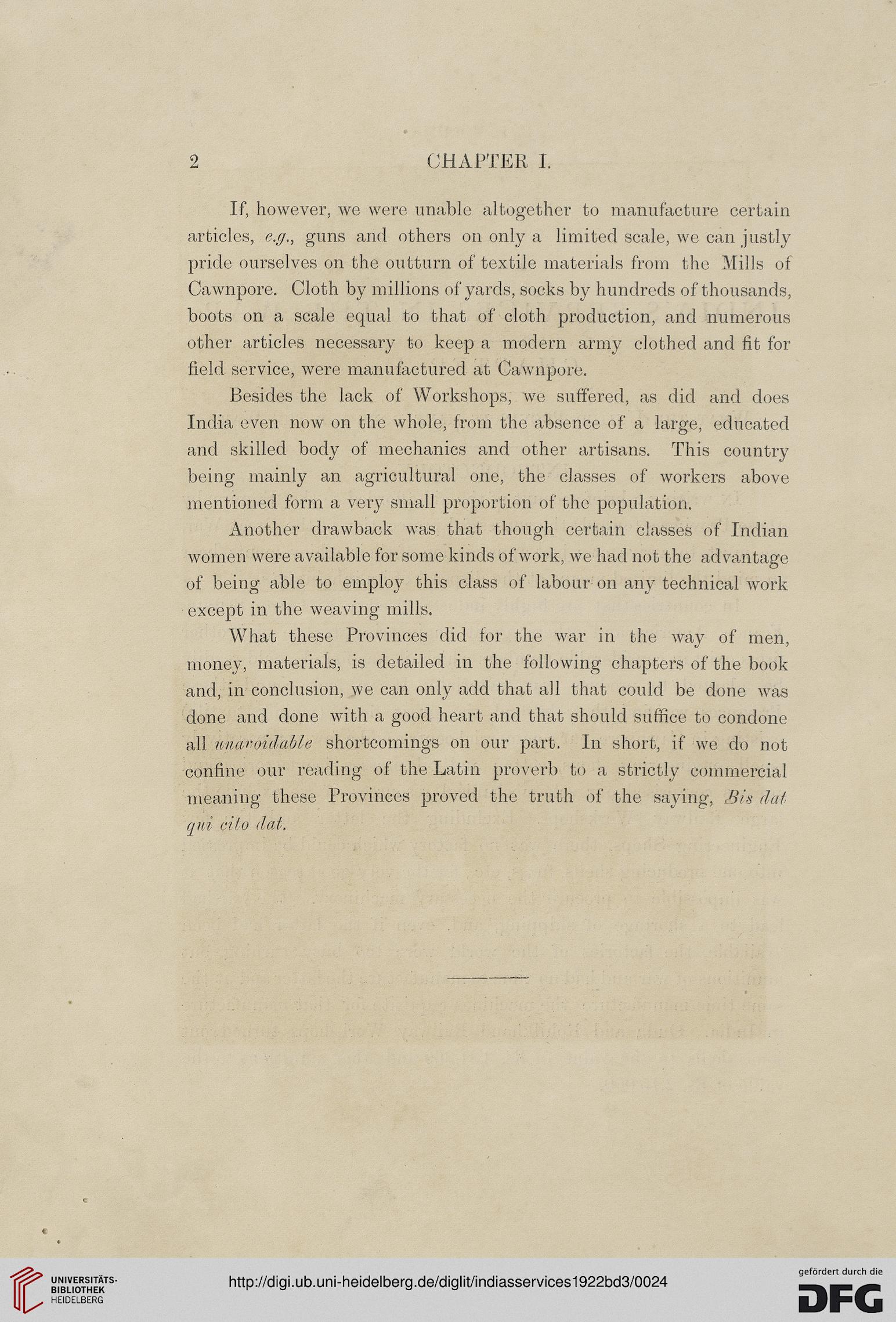2
CHAPTER I.
If, however, we were unable altogether to manufacture certain
articles, e.ff., guns and others on only a limited scale, we can justly
pride ourselves on the outturn of textile materials from the Mills of
Cawnpore. Cloth by millions of yards, socks by hundreds of thousands,
boots on a scale equal to that of cloth production, and numerous
other articles necessary to keep a modern army clothed and fit for
field service, were manufactured at Cawnpore.
Besides the lack of Workshops, we suffered, as did and does
India even now on the whole, from the absence of a large, educated
and skilled body of mechanics and other artisans. This country
being mainly an agricultural one, the classes of workers above
mentioned form a very small proportion of the population.
Another drawback was that though certain classes of Indian
women were available for some kinds of work, we had not the advantage
of being able to employ this class of labour on any technical work
except in the weaving mills.
What these Provinces did for the war in the way of men,
money, materials, is detailed in the following chapters of the book
and, in conclusion, we can only add that all that could be done was
done and done with a good heart and that should suffice to condone
all unavoidable shortcomings on our part. In short, if we do not
confine our reading of the Latin proverb to a strictly commercial
meaning these Provinces proved the truth of the saying, J3is da/
qui cito dal.
CHAPTER I.
If, however, we were unable altogether to manufacture certain
articles, e.ff., guns and others on only a limited scale, we can justly
pride ourselves on the outturn of textile materials from the Mills of
Cawnpore. Cloth by millions of yards, socks by hundreds of thousands,
boots on a scale equal to that of cloth production, and numerous
other articles necessary to keep a modern army clothed and fit for
field service, were manufactured at Cawnpore.
Besides the lack of Workshops, we suffered, as did and does
India even now on the whole, from the absence of a large, educated
and skilled body of mechanics and other artisans. This country
being mainly an agricultural one, the classes of workers above
mentioned form a very small proportion of the population.
Another drawback was that though certain classes of Indian
women were available for some kinds of work, we had not the advantage
of being able to employ this class of labour on any technical work
except in the weaving mills.
What these Provinces did for the war in the way of men,
money, materials, is detailed in the following chapters of the book
and, in conclusion, we can only add that all that could be done was
done and done with a good heart and that should suffice to condone
all unavoidable shortcomings on our part. In short, if we do not
confine our reading of the Latin proverb to a strictly commercial
meaning these Provinces proved the truth of the saying, J3is da/
qui cito dal.





